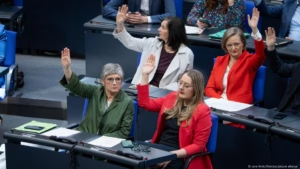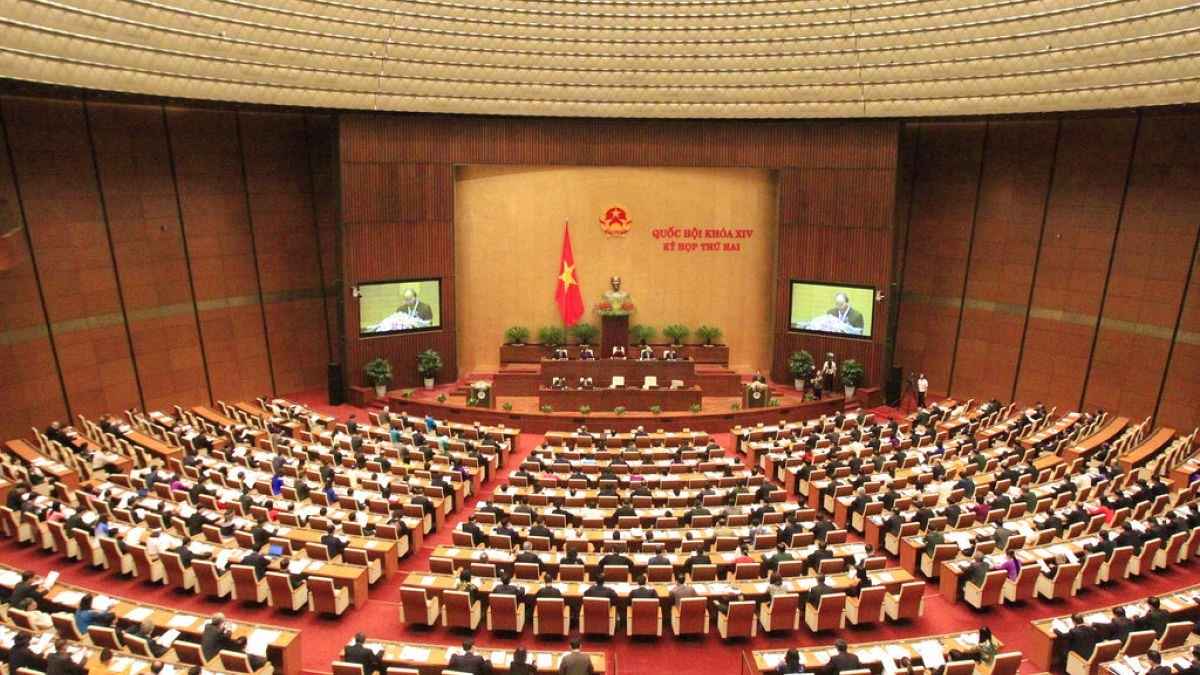EU officials, including Commission President Ursula von der Leyen, are planning a trip to Vietnam to strengthen trade ties with the Southeast Asian country five years after they signed a free trade agreement.
Ursula von der Leyen is set to visit Vietnam in the coming months to strengthen economic ties, according to the Commission President’s spokesperson.
“Plans are in place to visit Vietnam, particularly to reinforce economic ties,” EU chief spokesperson Paula Pinho said, adding that a date for the trip has not been set yet.
Trade Commissioner Maroš Šefčovič and International Partnerships Commissioner Jozef Síkela are also scheduled to travel to Vietnam in April to mark the 35th anniversary of EU-Vietnam diplomatic relations and five years after the free trade agreement was signed.
The EU aims to deepen its trade partnership with Vietnam, its largest trading partner among the Association of Southeast Asian Nations (ASEAN).
In 2024, trade flows between the EU and Vietnam amounted to €68 billion.
The EU is also eyeing Vietnam’s strategic mineral resources, having recently established deals regarding critical minerals with Argentina, Australia, Chile, Rwanda, Ukraine, and Uzbekistan, in an effort to reduce its dependency on China.
According to the United States Geological Survey (USGS), Vietnam is the world’s second-largest producer of tungsten and possesses significant deposits of rare earths, which are crucial for the production of electric vehicles, wind turbines, and solar panels.
Jean-Jacques Bouflet, vice-chairman of Eurocham (the European chamber of commerce in Vietnam), informed Euronews that Vietnam is interested in exporting minerals while still prioritizing domestic refining to increase their added value before export.
Europe may collaborate with Vietnam on the exploitation of certain minerals such as lithium.
In recent months, the EU has finalized free trade agreements with Mercosur countries (Argentina, Brazil, Paraguay, and Uruguay), Switzerland, Mexico, and has restarted trade negotiations with India.
Vietnam, in turn, may be interested in European weaponry as it looks to decrease its reliance on Russian supplies amid the conflict in Ukraine.
The EU is a major foreign investor in Vietnam. It mainly exports high-tech products, aircraft, vehicles, pharmaceutical products, and imports electronics, footwear, textiles, clothing, coffee, and rice.
The trade agreement, signed in 2019, became effective in 2020. However, the investment protection agreement, also signed in 2019, has yet to be ratified by nine EU member states.
“Many European companies want to establish operations in Vietnam to take advantage of a highly competitive workforce,” Bouflet stated. The investment agreement would enable European companies to invest in Vietnam on par with local businesses.





